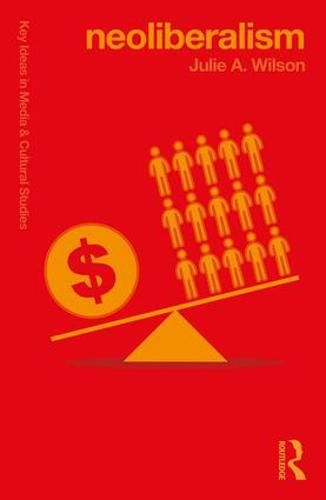Readings Newsletter
Become a Readings Member to make your shopping experience even easier.
Sign in or sign up for free!
You’re not far away from qualifying for FREE standard shipping within Australia
You’ve qualified for FREE standard shipping within Australia
The cart is loading…






Thanks to the rise of neoliberalism over the past several decades, we live in an era of rampant anxiety, insecurity, and inequality. While neoliberalism has become somewhat of an academic buzzword in recent years, this book offers a rich and multilayered introduction to what is arguably the most pressing issue of our times. Engaging with prominent scholarship in media and cultural studies, as well as geography, sociology, economic history, and political theory, author Julie Wilson pushes against easy understandings of neoliberalism as market fundamentalism, rampant consumerism, and/or hyper-individualism. Instead, Wilson invites readers to interrogate neoliberalism in true cultural studies fashion, at once as history, theory, practice, policy, culture, identity, politics, and lived experience. Indeed, the book’s primary aim is to introduce neoliberalism in all of its social complexity, so that readers can see how neoliberalism shapes their own lives, as well as our political horizons, and thereby start to imagine and build alternative worlds.
$9.00 standard shipping within Australia
FREE standard shipping within Australia for orders over $100.00
Express & International shipping calculated at checkout
Thanks to the rise of neoliberalism over the past several decades, we live in an era of rampant anxiety, insecurity, and inequality. While neoliberalism has become somewhat of an academic buzzword in recent years, this book offers a rich and multilayered introduction to what is arguably the most pressing issue of our times. Engaging with prominent scholarship in media and cultural studies, as well as geography, sociology, economic history, and political theory, author Julie Wilson pushes against easy understandings of neoliberalism as market fundamentalism, rampant consumerism, and/or hyper-individualism. Instead, Wilson invites readers to interrogate neoliberalism in true cultural studies fashion, at once as history, theory, practice, policy, culture, identity, politics, and lived experience. Indeed, the book’s primary aim is to introduce neoliberalism in all of its social complexity, so that readers can see how neoliberalism shapes their own lives, as well as our political horizons, and thereby start to imagine and build alternative worlds.